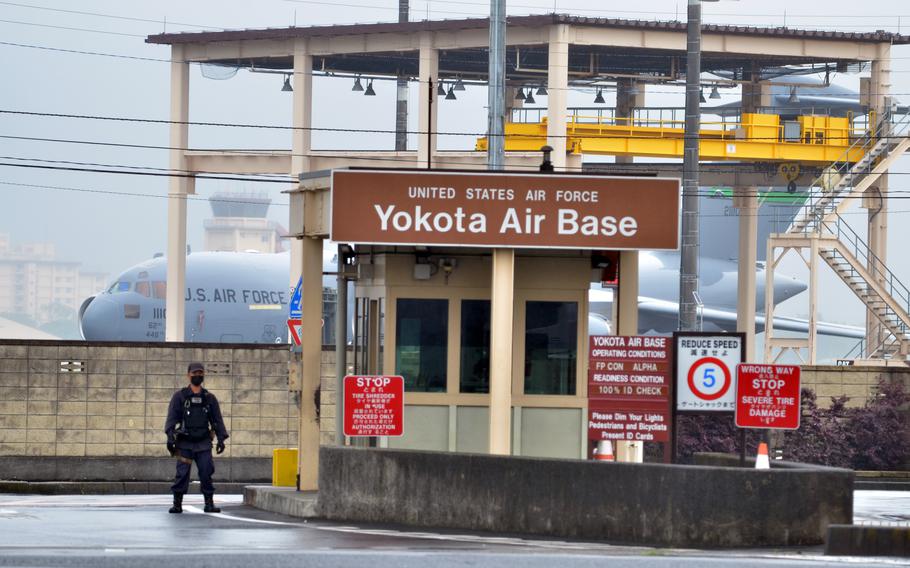
Yokota Air Base is home of the 374th Airlift Wing, 5th Air Force and U.S. Forces Japan in western Tokyo. (Seth Robson/Stars and Stripes)
YOKOTA AIR BASE, Japan — U.S. Forces Japan pushed back on claims in local media of possible water contamination at its home base in western Tokyo as “inaccurate” and “regrettable.”
A June 9 report by the Tokyo Shimbun, citing unnamed Japanese officials, said the Air Force might stop using wells on Yokota because they may not meet new American drinking water standards.
The U.S. Environmental Protection Agency issued new regulations in April that set maximum contaminant levels of 4 parts per trillion for two PFAS compounds, PFOA and PFOS. Its previous standard, set in 2016, was 70 parts per trillion.
U.S. water utility systems have five years to comply with the new maximum contaminant levels, according to the EPA in April.
Yokota officials did not respond to a question emailed Tuesday about the level of PFAS in base drinking water.
However, in a statement that day, USFJ spokesman Air Force Maj. Tom Barger denied the claims in Tokyo Shimbun’s report.
“There is no validity to the recent reporting regarding drinking water wells at Yokota Air Base,” Barger stated. “Any unnecessary angst caused by this inaccurate and speculative information is regrettable.”
There is no proposal to stop using on-base wells, the statement said.
USFJ remains committed to protecting the health of personnel, their families and the surrounding communities, the statement added.
“We will continue to adhere to all relevant agreements, obligations and procedures as good stewards of our installations and the environment and continue to closely coordinate with the Government of Japan,” Barger’s statement said.
Tests of people living downstream of Yokota between November 2020 and June 2023 found that more than half of those tested had high levels of PFAS in their blood, a concerned residents’ group told Stars and Stripes in November.
PFAS, short for poly and perfluoroalkyl substances, is a class of chemicals linked to an increased risk of certain tumors of the liver, testicles, breasts and pancreas, according to the American Cancer Society.
The residents’ group, which outlined its concerns in a Nov. 2 letter to Japanese Prime Minister Fumio Kishida, wants the Japanese government to check for PFAS contamination at Yokota, where the fire-extinguishing foam was used and PFAS spills were reported between 2010 and 2012.
The fire-suppression systems at Yokota that held PFAS are no longer in service as part of a wider effort to replace them with materials other than PFAS at bases across Japan.
Yukio Negiyama, a co-leader of a Japanese residents’ group, on Wednesday said he welcomes stricter U.S. drinking water standards.